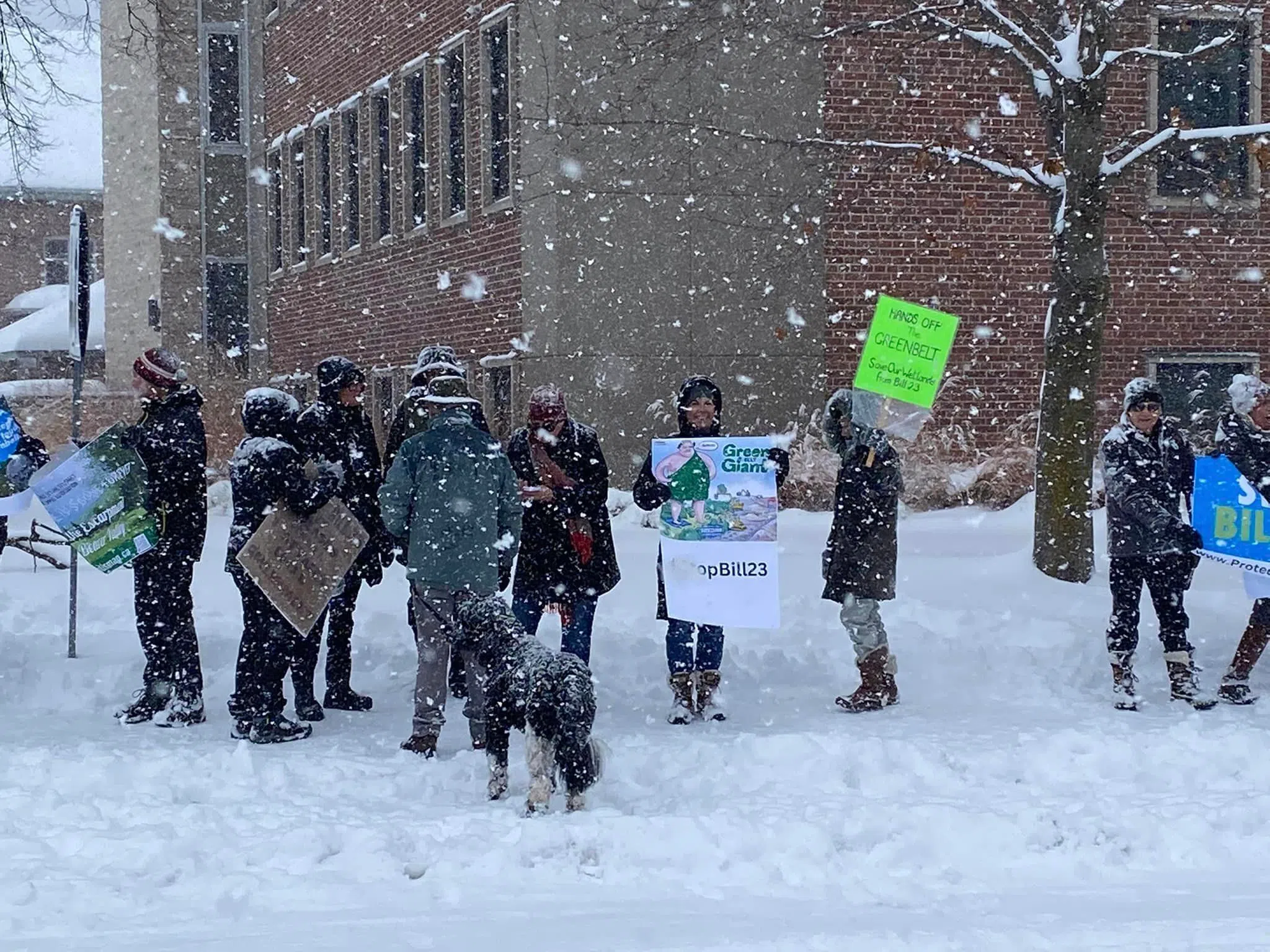
Image from Protecting Talisman Lands Association Facebook page
Despite the snowy weather last Friday, a group demonstration was held outside of the office for Bruce-Grey-Owen Sound Progressive Conservative MPP Rick Byers about Bill 23.
The More Homes Built Faster Act, which was introduced by the Ford Government on October 25th, has been met with a number of concerns from conservation groups across Ontario, as well as people in the agricultural sector.
Stephanie Warner, who was one of the organizers of Friday’s protest, is also a board member of the Protecting Talisman Lands Association.
She says that the main point of the demonstration was to speak out against builders being able to develop potentially on lands that would be protected by land conservation authorities, lands that are environmentally sensitive, and even lands that may be unsuitable for development, such as flood plains.
Warner mentions the fact that some conservation authorities were set up back in 1954.
“It’ll have a big impact on the land conservation authorities, which frankly, are there to protect people. They were set up in response to Hurricane Hazel years ago when lands were being flooded. So, you know, we’re going to have all these houses built on [a] floodplain, and [we’ll see] higher insurance costs, and higher municipal costs… and it seems like a good idea to have more housing until you find out the costs that come with it, and all of the protections that go away through this bill.”
There have been protests in different municipalities across Southern Ontario since it was introduced, including in front of Doug Ford’s office last week.
Other municipalities that have been host to demonstrations include Simcoe County, Wellington County, and Hamilton.
There have also been concerns raised by environmental groups, such as Ontario Farmland Trust regarding Bill 23 from an agricultural perspective.
On their Website, OFT says that developing too closely to agricultural lands can contaminate all agricultural soils, making them unusable for farming.
Furthermore, they say that an overabundance of housing developments near rural lands without proper municipal infrastructure will likely take a toll on rural infrastructure, including septic and well water resources.
Warner also touched upon one part of Bill 23, which takes out the ability of third parties to dispute decisions to the Ontario Land Tribunal once approvals have been given.
She says, “Citizens groups know the local landscapes, so at the Ontario Land Tribunal they can work to educate people who may not know the geography as much as local residents do.”
Warner also says that despite going into the office and requesting an impromptu meeting with Byers, no meeting took place.



